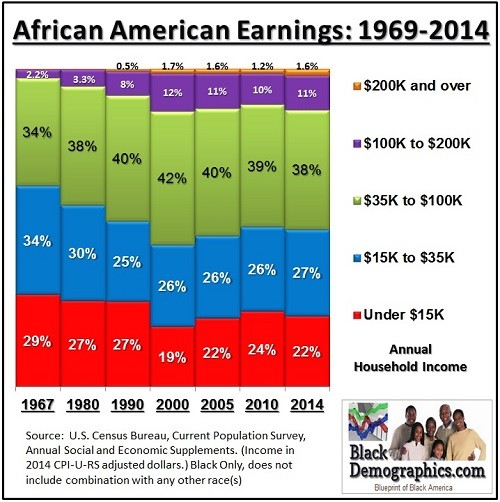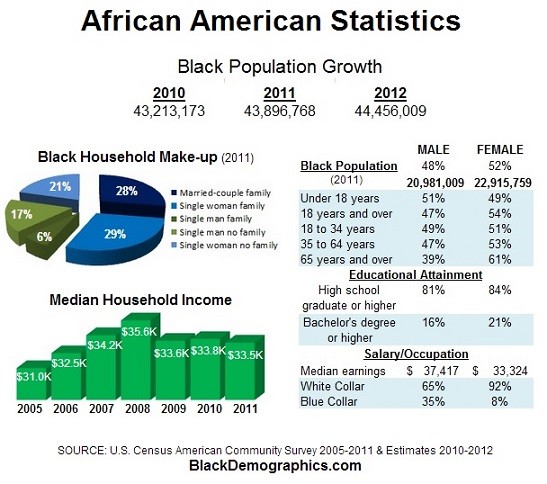Hypocracy as a Way of Life
By Marimba Ani, 7 February 1995
This document consists of Siddiq's extracts from Marimba Ani's Yorugu, which he sent to the Newsgroup, soc.culture.african,soc.culture.nigeria. Femi Akomolafe then forwarded it from there to the AGE-L on 7 February, 1995.
Siddiq's prefatory comment:
The following is from the book Yurugu by Marimba Ani. The publisher is Africa World Press. This book is the book to get if you ever wonder why white folk act the way they do. In it, Marimba Ani explores the spiritual, historical and psychological cause of European behavior and its effect on African people. I feel that this is one of the best books written about European behavior and its effect on African personhood. It is written from an African center and is thoroughly documented. If you buy nothing else this year get this book.
Hypocricy as a Way of Life
Within the nature of European culture there exists a statement of value or of "moral" behavior that has no meaning for the members of that culture. I call this the "rhetorical ethic;" it is of great importance for the understanding of the dynamics of the culture. The concepts of traditional European anthropology are inadequate to explain the phenomenon to which I am referring here, as it has no counterpart in the types of cultures to which anthropologists have generally directed their attention in the past. But with the concept of
asili, which facilitates an ideological approach to the study of culture, the rhetorical ethic becomes visible; even compelling. It fits the logic of the European
asili, assisting the culture in the achievement and maintenance of power. Without this interpretation certain manifestations within the verbal iconography of the culture appear to be inconsistent with its underlying ideological thrust. And that simply would not make sense. Let us see how the mechanism of the rhetorical ethic works.
The related distinction used traditionally in anthropology is stated in terms of "ideal culture" and "actual behavior" and is said to be characteristic of all cultures, thereby helping to confuse the issue of the uniqueness and problematical nature of European culture. The conventional distinction is illustrated in the following manner by the authors of a recently published anthropology textbook.
For example, an idealized belief, long cherished in America, is that all doctors are selfless, friendly people who chose medicine as their profession because they felt themselves "called" to serve humanity, and who have little interest in either the money or the prestige of their position. Of course, many physicians do not measure up to this ideal. Nevertheless, the continued success of television programs that portray the average American M.D. as a paragon of virtue indicates how deeply rooted in our collective psyche the ideal of the noble physician is.
This is a common misconception that has led to a mistaken view and superficial understanding of the nature of European (Euro- American) society. To refer to the images offered above as "ideal" is a misuse or at least a misleading use of the term "ideal." The projection and success of the image of the committed, altruistic doctor do not indicate that it is a "deeply rooted" ideal in the American psyche.
It is rather an indication of the fact that this is how Americans want to appear to others, most often to non-European peoples-their "objects.'' In this case it is the way that the doctor wants to appear to his patients, or ''objects,'' because this appearance works to his advantage. On the other hand, an image that projects him as a potential exploiter can lead to the possibility of malpractice suits and to the institutionalization of socialized medicine-neither of which is lucrative for him.
An ''ideal'' should be understood to be some thing that functions normatively and something that is emulated; that which has meaning for those who share it. It is the European experience that encourages the confounding of meaning and commitment with mere verbal expression. (It was within the incipient European experience that "rhetoric" came to be regarded as art.) In African culture words have power. The European mind is a political one and for this reason constantly aware of the political effect of words and images as they are used for the purposes of manipulation. By "political" I mean to indicate an ego that consistently experiences people as others; as representatives of interests defined differently and, therefore, as conflicting with this "ego." The individual is concerned, therefore, with the way in which his verbal expression and the image he projects can influence the behavior of those to whom he relates, be they patients (would-be consumers), neocolonial subjects, an opposing candidate for office, or an African selfdeterminist/nationalist. This is what is "deeply rooted" in the American mind-the psychology of "public relations," "salesmanship," and political strategy. It is in the Euro-American vernacular that the word "image" is used so frequently. To be concerned with one's image as opposed to one's self is a European characteristic.
To be aware of the strategical advantage of appearing to be aItru- istic when one is operating out of self-interest does not mean that altruism is a meaningful "ideal" in terms of one's value-system. It is, instead, an outgrowth of the propaganda that the Europeans have fed "non-European" peoples since they first sought to conquer them. Because they exported ("sold") this altruistic image so successfully, they have had to project themselves as adhering to this "ideal"; similarly, the projection of themselves or their motives in this way has been essential to the successful imposition of this "ethic" on others.
The basic principle to be kept in mind in order to understand this dynamic of European culture is that the major contributing factor to the success of European nationalism has been its projection as disinterested internationalism,
The use of "ideal" in the passage quoted above is simply an inad- equate concept for the ethnological analysis of European culture. Hoebel, in an earlier textbook, offers his version, which is similarly inadequate: "Ideal Culture consists of a people's verbally expressed standards and behavior." The examples that these anthropologists offer from other cultures to explicate the distinction between "ideal" and "actual" in no way represent the phenomenon in Western culture under consideration.
Hoebel describes "normative postulates or values" as "deep- lying assumptions about whether things or acts are good and to be sought after, or bad and to be rejected."s This is precisely what the "rhetorical ethic" is not. Hoebel's definition can be used to get at the converse of the phenomenon I wish to describe. A "rhetorical ethic" is not a "deep-lying assumption." It is a superficial verbal expression that is not intended for assimilation by the members of the culture that produced it. The "rhetorical ethic," a European phenomenon, has been neglected in conventional ethnological theory, which has consistently offered concepts devoid of political significance.
Anthropologists talk about the gap in all cultures between thought and deed, between ideas and actions. The gap to which I am referring, however, is between verbal expression and belief or commitment; between what people say and what they do. Nowhere other than in European culture do words mean so little as indices of belief. It is this characteristic that is of concern here and this characteristic for which the concepts of traditional anthropology are inadequate to explain.
As a cultural trait it has, however, been described by others, par- ticularly those who have been made victims of European cunning.
Below an indigenous American describes European behavior:
They would make slaves of us if they could; but as they cannot, they kill us. There is no faith to be placed in their words.
They will say to an Indian, "My friend; my brother!" They will take him by the hand and, at the same moment destroy him.... Remember that this day I warned you to beware of such friends as these. I know the Long-Knives. They are not to be trusted.
It is an inherent characteristic of the culture that it prepares members of the culture to be able to act like friends toward those they regard as enemies; to be able to convince others that they have come to help when they, in fact, have come to destroy the others and their culture. That some may "believe" that they are actually doing good only makes them more dangerous, for they have swallowed their own rhetoric-perhaps a convenient self-delusion. Hypocritical behavior is sanctioned and rewarded in European culture. The rhetorical ethic helps to sanction it. European culture cannot be understood in terms of the dynamics of other cultures alone. It is a culture that breeds hypocrisy-in which hypocrisy is a supportive theme a standard of behavior. Its hypocritical nature is linked to the Platonic abstraction, to objectification, to the compartmentalization of the person and the denial of the emotional self. Below Havelock characteristically understands the case:
Another thing noticeable about them [pre-Platonic" Greeks] in this period is their capacity for direct action and sincere action and for direct and sincere expression of motive and desire. They almost entirely lack those slight hypocrisies without which our civiliza- tion does not seem to work.
The distinction and definitions that can lead to a better under- standing of the Europeans and their culture can only come from a perspective that is not one of European chauvinism; for it is the method of European chauvinism or cultural nationalism to conceal European interest. As I use it, "value" is only meaningful value; it is that which motivates behavior and is the origin of human commitment. Value determines what is imitated and preserved, what is selected for and encouraged. "Avowed values" on the other hand, which are merely professed, which find expression only verbally, which are not indicative of behavior, belong to what I have called the "rhetorical ethic."
The European rhetorical ethic is precisely that-purely rhetorical- and, as such, has its own origins as a creation for export; i.e., for the political, intercultural activity of the European. It is designed to create an image that will prevent others from successfully anticipating European behavior, and its objective is to encourage nonstrategic (i.e., naive, rather than successful) political behavior on the part of others. This is the same as "nonpolitical" behavior.) It is designed to sell, to dupe, to promote European nationalistic objectives. It "packages" European cultural imperialism in a wrapping that makes it appear more attractive, less harmful. None of these features represents what can culturally be referred to as an "ideal" in any sense. The rhetorical ethic is, therefore, not dysfunctional in European culture.
It does not generate nor reflect conflict in European ideology or belief-system; but it is, rather, necessary to the maintenance and projection of the utamaroho and performs a vital function in sustaining European cultural nationalism in the pursuit of its international objectives.
The rhetorical ethic is made possible by the fact that hypocrisy as a mode of behavior is a valued theme in European life; the same hypocritical behavior that its presence sanctions. Again, "value" refers to that which is encouraged and approved in a culture. European culture is constructed in such a way that successful sur- vival within it discourages honesty and directness and encourages dishonesty and deceit-the ability to appear to be something other than what one is; to hide one's "self," one's motives and intent.
People who are duped by others and relate to a projected image are considered fools or "country bumpkins." Hypocrisy in this way becomes not a negative personality trait, not immoral or abnormal behavior, but it is both expected and cultivated. It is considered to be a crucial ingredient of "sophistication," a European goal. European intracultural, political behavior is based on hypocrisy-as are business relations, the advertising media, and most other areas of public, and social interaction. It is merely a manifestation of this theme when Americans claim that politicians are basically honest. The claim itself is hypocritical, and the public expects it to be so. We all know that the objective of commercial advertising is to convince us to buy products so that manufacturers can make large profits, but the slogans attempt to persuade us that the product is beneficial to our well being, as though the producer has our welfare at heart.
This hypocrisy touches the lives of every member of the culture in their dealings with one another, and yet it originates in part in the nature of their intercultural relationships. It is a part of the mechanism of European expansionism, All of these factors must go into the understanding of the rhetorical ethic and not an overly simplistic distinction between "ideal" and "actual" culture; perhaps a relevant distinction with regard to other cultures that create and are created by very different "cultural personalities." Let us look more closely at this "ethic" and see how it has functioned historically. The Rhetorical Function of the "Christian Ethic."
This is a small primer(data dump) to anything I really want to write on the subject.
From the above you can see how I would basically approach the topic.











 Soon as I saw the title I already knew what is was gone be.
Soon as I saw the title I already knew what is was gone be. ...I wonder how his plan is coming through though
...I wonder how his plan is coming through though

 I didn't just see that, god I didn't just see that
I didn't just see that, god I didn't just see that tell me I didn't...
tell me I didn't... damn
damn





 That shyt deserves it's own thread ...fo-real.
That shyt deserves it's own thread ...fo-real.



